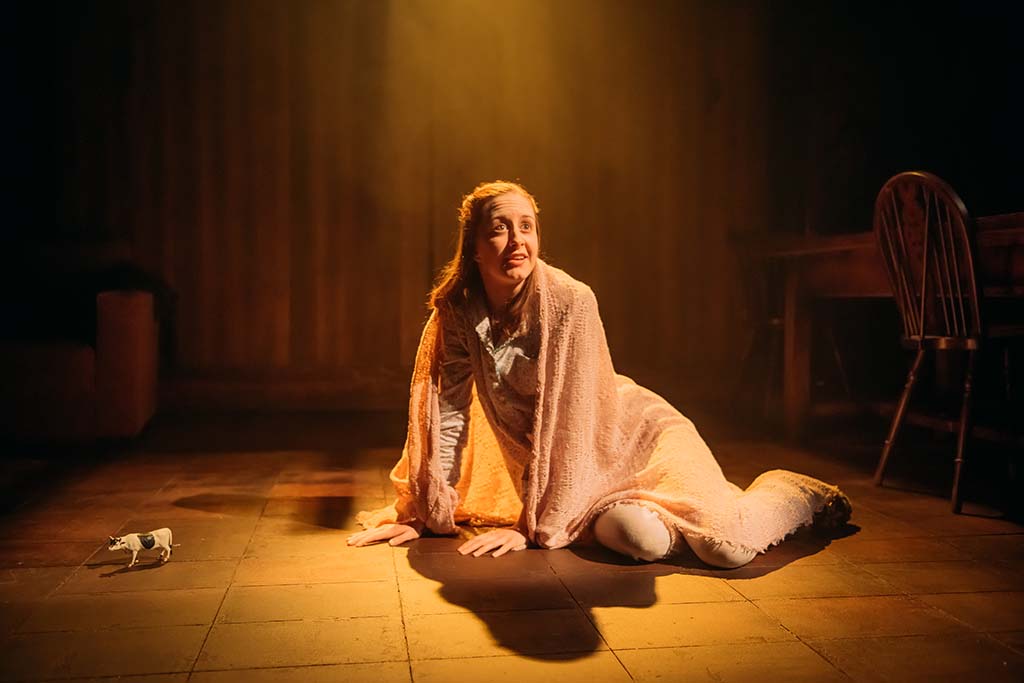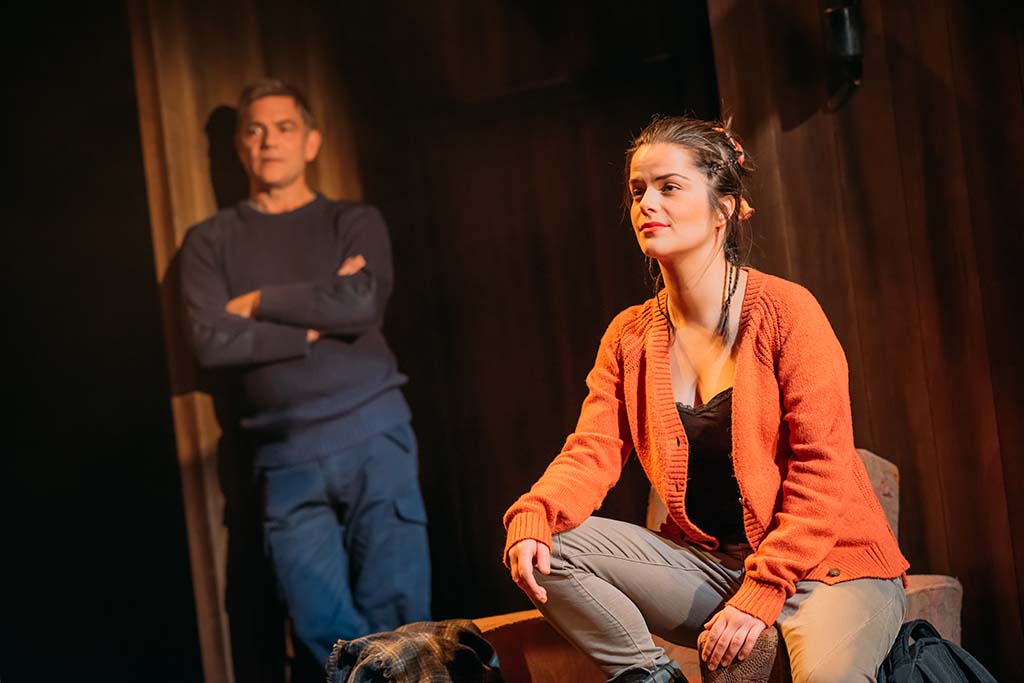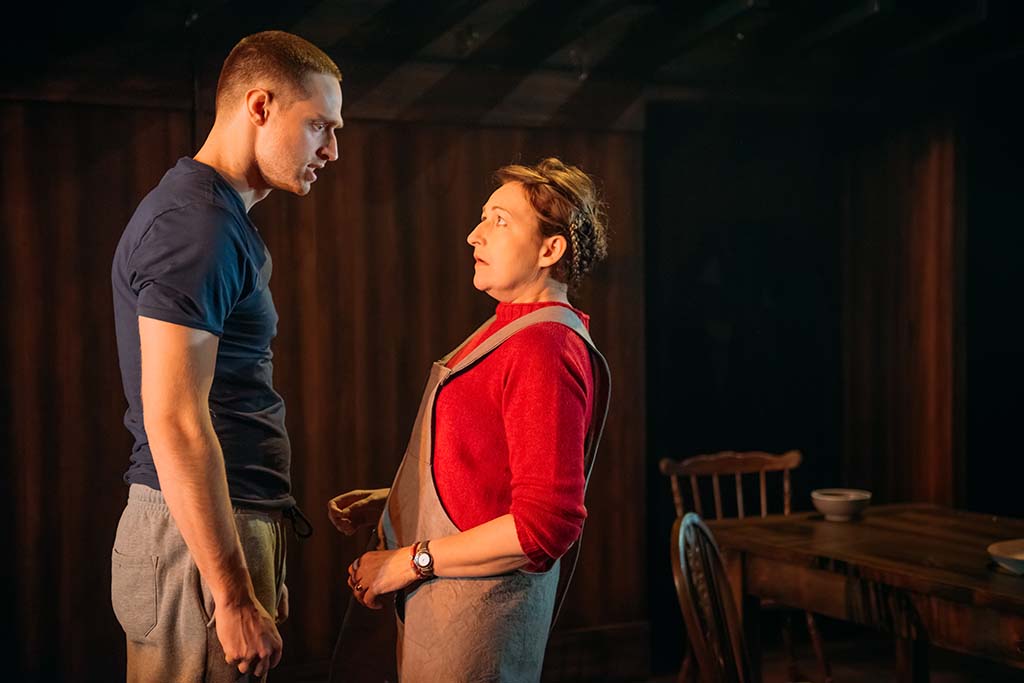The premise of Rob Drummond’s latest play, Grain in the Blood, is a dilemma loaded with tragic possibilities. Will Isaac (Andrew Rothney), Sophia’s (Blythe Duff) estranged son after years in prison, make the choice expected of him and save Autumn (Sarah Miele)? The scene is set in Sophia’s farm, in a valley resonating with ancestral tales of blood-drenched Harvest feasts. We witness Isaac’s return to his mother’s house, where she lives with her grand-daughter Autumn, and the latter’s aunt, Violet (Frances Thorburn). The play fluctuates between a realistic depiction of the life at the farm and a more poetic mood, as Autumn recites verses about the Grain Mother, ‘she who makes the wheat grow.’
According to director Orla O’Loughlin, the play has the qualities of a thriller. Overall, however, Grain in the Blood never fully transcends this generic affiliation. In this respect, the sparseness of the script proves at once a quality and a flaw, and occasionally falls into easy tropes and heavy-handed jokes. The use of swearing as a comedic device has a tendency to wear off. These elements may please the fans of the noir and thriller genres, but are something of a let-down given the potential for more daring developments.
Towards the end of the play, the characters hold their breath as the belly of a corn dolly is slit open. Instead of the ancestral blood of the Harvest legends, however, the dolly is filled with a scoop of jam. Blood is curiously missing from this drama, although it seems at the centre of the protagonists’ preoccupations. The play’s finale succeeds in restoring some tension and fear to the stage.
Its ending is not the only thing the play has to offer. As Isaac’s parole officer Burt, John Michie delivers his performance with the adequate amount of sobriety and deadpan wit. Burt and Autumn’s shared moments provide us with some of the funniest moments of the play. Indeed, each of her appearances evidence Sarah Miele’s capacity to convey her character’s stubborn but prophetic presence, as she assumes the role of a poetic narrator who looks at the world of her grown-up relatives with lucidity and compassion.
Fred Meller’s set, with its sliding doors opening on a place endowed with multiple significations, is at once simple and effective in pitting the everydayness of Sophia’s kitchen against Autumn’s bedroom and the outside, hidden behind opaque wooden panels. The skilful use of lights and music enables occasional ventures into the uncanny and the nightmarish. The agonizing neighing of a mare, suggested by a screeching chord, makes for an all too brief moment of vacillation between the real and the supernatural, and reminds us, in Sophia’s pithy words, that ‘we are all animals.’ With its blend of Harvest mythology, rural realism and suspense, Grain in the Blood offers no real surprise, but combines the ingredients for an enjoyable night at the theatre.




